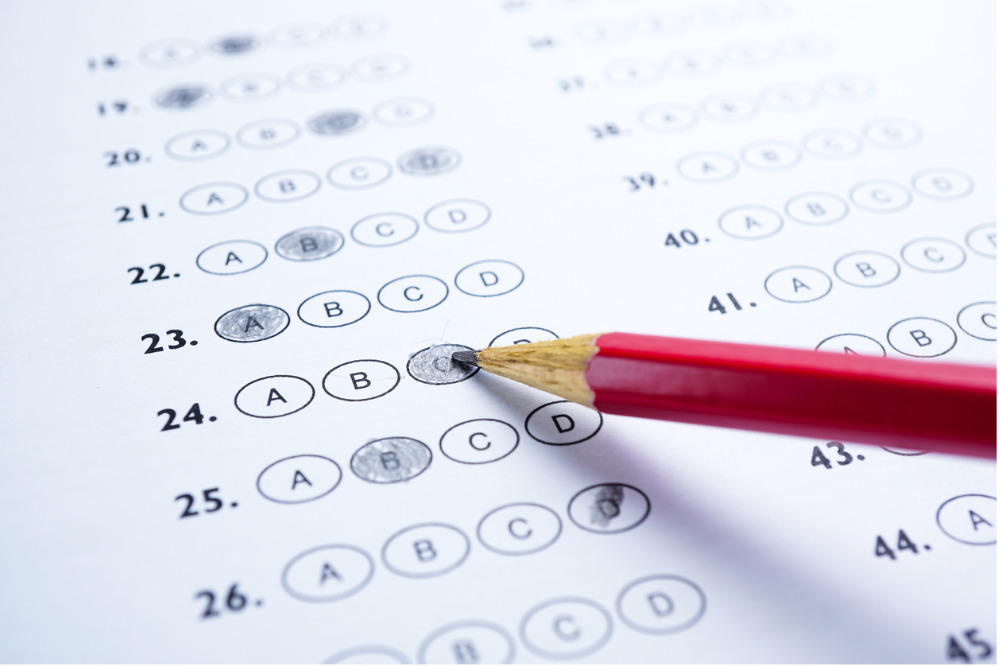
The potential impact of COVID-19 on students’ Year 12 results is an issue that Australia’s universities are taking seriously. After all, universities largely rely on enrolments for revenue, and many institutions have taken a big financial hit as of late.
As a solution to this challenge, the Australian National University, Swinburne and the University of Western Australia, among others, recently announced they would begin accepting students based on their Year 11 results.
ANU Vice-Chancellor Professor Brian Schmidt said the new admission requirements "will provide thousands of school-leavers from all across the nation with certainty in uncertain times".
"With the unprecedented disruption and challenges we are experiencing due to the COVID-19 pandemic, 2020 is not panning out how any of us expected," Professor Schmidt said.
"Students, particularly those in their final year of school, have experienced a very tough year already and their studies have been significantly disrupted by the COVID-19 crisis”.
In an article published in The Conversation, education policy lead Jen Jackson and policy fellow Sarah Pilcher from the Mitchell Institute at Victoria University said that this strategy is only “a small response” in a world experiencing enormous changes.
They point out that while some students consider using year 11 results as unfair or flawed, it is unlikely to damage their chances of getting into university.
“That’s because ATAR scores are strongly correlated with earlier school achievement, which means high achievers are unlikely to lose their position in the race,” Jackson and Pilcher wrote.
“Importantly, using Year 11 results will go some way towards reducing the effects of the ‘digital divide’ on student learning. Students with limited access to technology, or from less wealthy schools with fewer resources to cope with the sudden adaptation to online learning, will be further disadvantaged in the Class of 2020”.
One downside, they note, is the “potential for confusion for students who have been assured by education minister Dan Tehan that they will still receive an ATAR in 2020, with appropriate adjustments”.
“It’s not yet clear what these adjustments will be, and state differences in senior secondary assessments complicate matters further,” they wrote.
‘A perfect opportunity to rethink the ATAR’
Earlier this month, a report from the Mitchell Institute found that just 26% of Australian students enter an undergraduate degree based on their ATAR.
So what does this mean for universities?
Jackson and Pilcher suggest the post-COVID-19 tertiary education landscape could be “a buyers’ market”, as universities compete for students in a less globally mobile world.
“Australian universities are experiencing massive drops in their numbers of international students. This means the university sector will be experiencing estimated losses of up to A$19 billion,” they wrote.
“A logical policy response would be to enable universities to open up access for domestic students to make up some of the shortfall”.
The biggest question, say Jackson and Pilcher, may be “how to create fair entry pathways into tertiary education for the surge in participation the sector will need to survive – not how to cobble together fair ATAR scores for the relatively small proportion of university students who use it for an entry pathway”.
“Success at university does not depend on a high ATAR. This is especially so in courses like teaching and nursing where interpersonal skills and attitudes matter even more,” they wrote.
“Calls to ditch the ATAR ‘straitjacket’ and develop alternative assessments like learner profiles [student records that include academic and other learning] existed before COVID-19”.
Such calls, say Jackson and Pilcher, are intensifying in the current environment.
“This may be the perfect opportunity to rethink the ATAR as the main entry assessment for school leavers into university”.
Not everyone goes to university
Jackson and Pilcher say the preoccupation with ATAR scores ignores around half of school leavers who aren’t bound for university.
“Many of these students head to TAFE or other VET courses, which depend more on practical skills than academic achievement,” they wrote.
“The COVID-19 crisis has reinforced the importance of practical, hands-on skills in the Australian economy. Many people in the occupations that have kept Australia going during the crisis – including nurses, aged care workers, early childhood educators and freight and logistics workers – have VET qualifications”.
Jackson and Pilcher say COVID-19 may have an even bigger impact on students in the Class of 2020 who prefer practical skills to academic subjects as students doing VET subjects are missing out on hands-on learning.
“Meanwhile, young aspiring apprentices are struggling to find work, as job adverts for new apprenticeships collapse,” they wrote.
“Australia is notoriously bad at recognising the value of learning that does not lead to university. There is a risk these students will again be forgotten in the current focus on ATAR. While university-bound students might begin to breathe a sigh of relief, many more are still waiting for solutions that keep their year 12 dreams alive”.
The original version of this article appeared in The Conversation.


